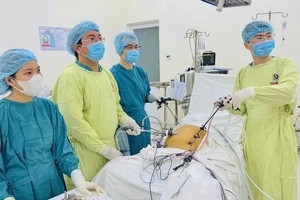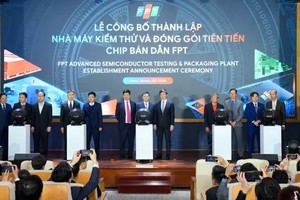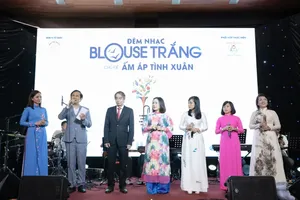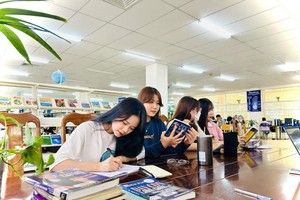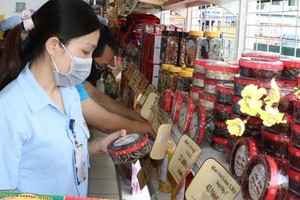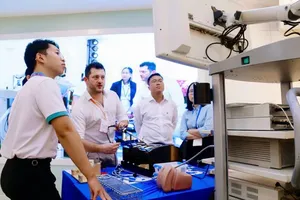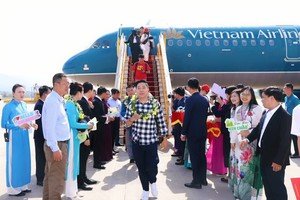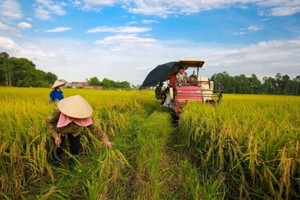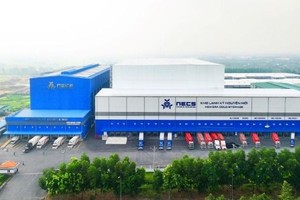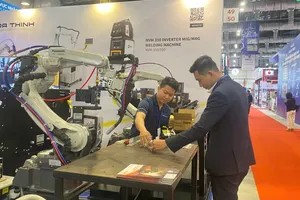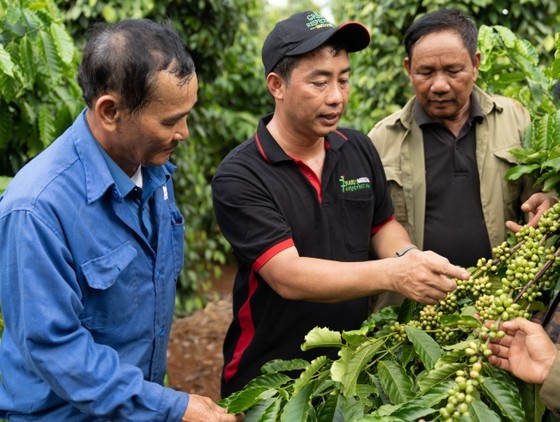 |
The project of sustainable coffee farms of Nestlé Vietnam in the Central Highlands |
Director Khuat Quang Hung of the External Relations and Communications Department of Nestlé Vietnam shared that to join hand in NZE commitment, Nestlé Vietnam is focusing on the upper part of its value chain, meaning to foster regenerative agriculture (restoring the biodiversity, improving soil quality, conserving water sources) and to regrow, conserve current forests. It continues its initiative of emission reduction and zero landfilled waste release in manufacturing activities for circular economy.
In particular, the model of regenerative agriculture has been applied widely among coffee farmers in Nescafé Plan in the Central Highlands since 2011. 16,000 households have been helped to grow coffee sustainably thanks to the drop of 40-60 percent of irrigation water and 20 percent of artificial fertilizer. Nestlé Vietnam is cooperating with its partners to develop a measuring tool to control KNK emissions in coffee growing.
Besides conserving forest via the three aspects of non-deforestation supply, afforestation, sustainable forest landscapes, Nestlé Vietnam started the project ‘Sustainable Coffee Cultivation through the Agro-forestry Model’ in Central Highlands provinces last June. While being able to provide jobs for farmers during the planting of 2.3 million coffee trees, the project is expected to absorb over 480,000 tonnes of CO2.
Similarly, Vietnam Dairy Products JSC. (Vinamilk) has also applied KNK control methods to reduce carbon release into the environment for a more sustainable growth. For instance, 13 dairy farms and 10 dairy product processing plants of this company have a solar energy system installed and are using other alternative energy sources like Biomass as well.
Vinamilk has invested in developing the Green Farm model, where advanced technologies and circular economy principles are applied for a decrease in harmful gas emission, which means sustainable agriculture.
Vinamilk’s fund for 1 million new trees in Vietnam was launched in 2012 and reached its target three years ago. This year, it continues to collaborate with the Agriculture and Rural Development Ministry to plant more trees for neutralizing carbon to fulfill the NZE commitment of Vietnam during the 2023-2027 period.
The company has set a goal of reducing 15 percent of its KNK emission by 2027, neutralizing 55 percent of its overall emissions by 2035, followed by a net emission of zero percent in 2050.
Obviously, the NZE and the circular economic model have led to certain requirements for policy makers as well as export companies in their manufacturing activities. however, due to limited resources, many businesses are facing a series of challenges. This has called for more support from management agencies in order to address current issues related to policies.
Mr. Pham Hoang Hai, in charge of partnerships in the Secretariat of the Vietnam Business Council for Sustainable Development, said that for a more sustainable growth in Vietnam, the role of enterprises in the circular economic model is to alter their working operations, making products, creating new markets, and proposing new practical policies.
Nevertheless, they are encountering various difficulties when connecting to other business clients and several inadequacies in legal regulations related to waste management, reproduction, and merchandise quality control. Therefore, it is necessary to complete the legal aspect (tax policies, financial incentives) in order to support businesses in designing their own ecosystem as well as managing their waste and secondary material.
Assoc. Prof. Dr. Nguyen Hong Quan, Head of the Institute for Circular Economy Development (ICED) under Vietnam National University-HCM, stressed that businesses play a critical role in fulfilling the targets of the NZE commitment when they are able to go green and implement circular economic models. However, not all enterprises can adopt these models, which asks for specific mechanisms from state management agencies to support them such as financial aid to go green, preferential prices for land lease.

